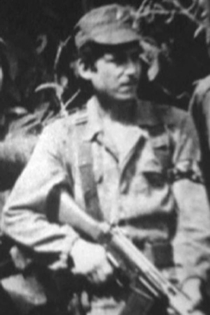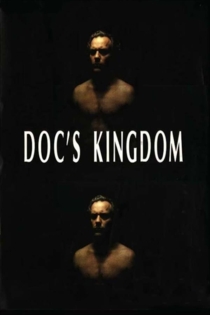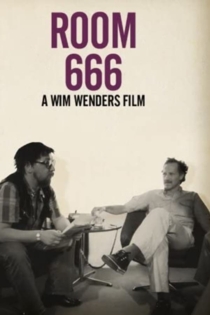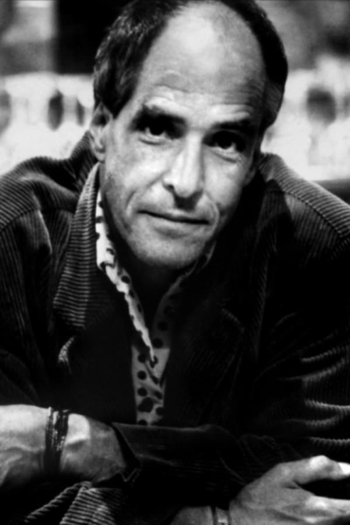
Robert Kramer
1939 - 1999Description above from the Wikipedia article Robert Kramer, licensed under CC-BY-SA, full list of contributors on Wikipedia.
Mes entretiens filmés
Boris Lehman
François Albéra, Jean-Marie Buchet
This distinctly personal journey into the artistic possibilities of independent film is not to be missed. Jonas Mekas, Jean-Pierre Gorin, Robert Kramer and many other visionaries and mavericks of the silver screen – as well as a book seller, a critic and a psychoanalyst – discuss what cinema has meant to them, what it is and what it could be and, implicitly, how it has changed over the 18 years in which this film was shot. Director Boris Lehman leads the charge, drawing in moments of absurdist humour and inventive camera work; he keeps things raw and spontaneous. His encounters with the now much-missed Jean Rouch and Stephen Dwoskin are particularly touching and stand testament to their personal playfulness and candour. An engaging, absorbing, epic odyssey of a movie.
My Conversations on Film
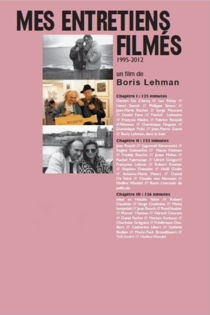
Route One/USA
Robert Kramer
Jesse Jackson, Paul McIsaac
Route One is the first major U.S. highway. 5000 km along the Atlantic coast, from the Canadian border to the tip of Florida. Doc, a physician who spent many years in Africa, returns to the U.S. and decides to reconnect with his home country by walking the legendary Route One.
Route One/USA
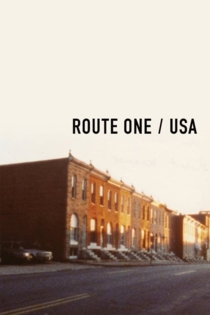
Starting Place
Robert Kramer
Clothilde Piven
In this film from late in his career, Kramer returns to Hanoi after nearly 25 years to re-envision the city’s struggle through an uncertain and daunting past, present, and future. The Vietnamese characters in the film are diverse: Kramer’s former guide from an earlier visit in 1969; a tight-rope walker in the national circus; a man who took photos of B-52s and another who lost his fingers shooting them down.
Starting Place

Another Country
Sérgio Tréfaut
Dominique Issermann, Glauber Rocha
The Portuguese Revolution (1974-75) seen through the eyes of some of the most important photographers and filmmakers that witnessed the event. Their dreams and expectations and what came out of the revolution. With outstanding historical footage.
Another Country
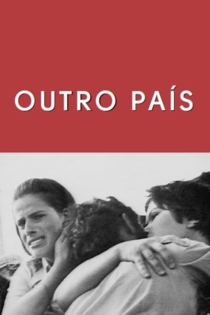
Notre Nazi
Robert Kramer
Albert Filbert, Henri Alekan
In Our Nazi, we are plunged into a situation we barely, and only slowly, understand: the filming of Thomas Harlan’s experimental feature Wundkanal (1984), in which true-life ex-SS officer Alfred Filbert, now very old, is ‘put on trial’ for the camera, without him suspecting what is to come or why he is really there. Kramer’s confronting film is an essay about the sticky complicity of everyone present at this event, each bringing their own history, their own political ideology, their own desires to take revenge, to seek redemption or compassion, or just to put their heads down and ‘get the job done’ professionally, or (in the case of Filbert) to be a star, a part of the magnificent, magical, seductive world of cinema, even if it kills him.
Our Nazi
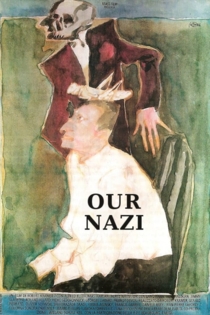
Scenes from the Class Struggle in Portugal
Philip J. Spinelli, Robert Kramer
Philip J. Spinelli
Combining newsreel footage, still photographs, interviews, and analytical narration, this documentary focuses on the antifascist, anti-imperialist efforts of labor groups, peasants, and working-class soldiers to liberate Portugal from the control of the government of Antonio de Oliveira Salazar.
Scenes from the Class Struggle in Portugal
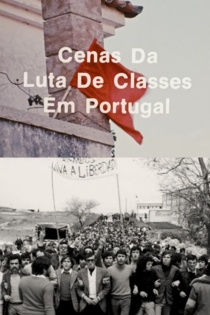
Le manteau
Robert Kramer
A director accepted to inquire about a mysterious coat stolen in Peru during the XVIth century. Who wove this coat? Why do those that touch it disappear? With the help of an archeologist, he retraces the itinerary of the mysterious garment: ripped off a mummy by a conquistador, brought back to Barcelona and confiscated by the clergy, taken by the French when Napoleon's troops ransacked the city, hidden on a French farm, the coat finally arrived in Berlin in 1945 in the suitcase of a fleeing SS officer...
Le manteau

Milestones
John Douglas, Robert Kramer
Mary Chapelle, Sharon Krebs
A portrait of those individuals who sought radical solutions to social problems in the United States during the 1960s and 1970s. Cutting back and forth between six major story lines and more than fifty characters. Exploring the lifestyles and attitudes of the American left during the period following the Vietnam War.
Milestones
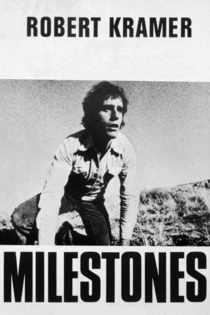
Cités de la plaine
Robert Kramer
Ben, Amélie Desrumeaux
The final film from expatriate American filmmaker Robert Kramer, who died in France in 1999. Kramer and collaborators tell the somber life story of Ben. After leaving his homeland as a youth, he is greeted in France by menial jobs in industry. In time, he opens a fruit market, finds a wife, fathers a child, and has it all come crashing down when he learns his mother is in danger back home. Upon his return to France, he finds his life in ruin.
Cities of the Plain

Wundkanal
Thomas Harlan
Alfred Filbert, Heike Geschonneck
An old man is kidnapped. His interrogation uncovers the biography of a mass murderer: The 80 years old man was a SS leader and responsible for the killing of thousands of people in Russia. He also "invented" an evil technique of eliminating political prisoners: the manipulated suicide. Thomas Harlan reconstructs the history of a bureaucratic murderer, he also develops a direct connection between the Nationalsocialism and the treatment of prisoners of the RAF terrorists in the Stuttgart isolation prison. Robert Kramer filmed the shooting of Harlan's Wundkanal: Notre Nazi documents a social experiment in which the children of Nazis and of victims meet a real culprit. The reality seems to be stronger that the fiction in Harlan's film. (Edition Filmmuseum)
Wundkanal
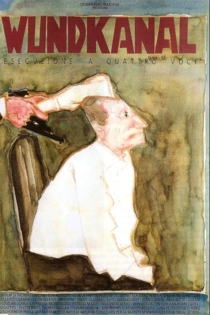
Sous le vent
Robert Kramer
Nicole Belguise, Michel Choquet
The French Ministry of Culture commissioned films on the cultural decade "en chantiers". Robert Kramer makes one of the six short films that illustrates the cultural side of the decade Mittérand. Here we see a director of cinema in the suburbs of Caen, in her room lined with flower paper. This for art and essay cinema. There, the critic Serge Daney in a sailor's cap, for a chat by the fire. An overview of French cinema today, "Pickpocket" on television. Then back on you. The camera slides on the desk that we imagine to be Kramer's. Finally, the camera flies over Paris, slides along the facades, stops on a window, entering the skylight: "The films invite to see ... I invite you to see Jean Genet's hotel room."
Leeward
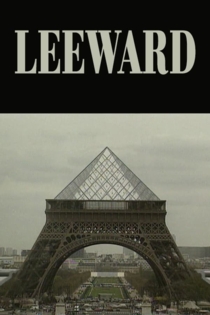
The State of Things
Wim Wenders
Isabelle Weingarten, Rebecca Pauly
On location in Portugal, a film crew runs out of film while making their own version of Roger Corman's The Day the World Ended (1956). The producer is nowhere to be found and director Munro attempts to find him in hopes of being able to finish the film.
The State of Things
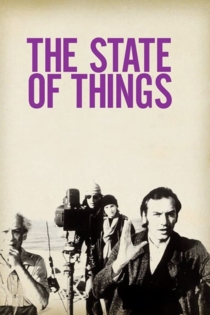
FALN
Robert Kramer, Peter Gessner
This 1965 documentary portrait of a civil war is today a remarkable time capsule of Venezuelan political and social history, and valuable background to the ongoing social conflicts in that country. FALN chronicles key events of the era, from the 1958 overthrow of dictator Perez Jimenez, and the flawed attempts at social reform by Romulo Betancourt's government, to the 1962 emergence of the national liberation movement- the FALN. The FALN engaged in rural and urban guerrilla struggle throughout the Sixties, but, failing to achieve its desired coup d'etat or to gain the support of the nation's poor, the organization had largely dissipated by the end of the decade. A compilation documentary incorporating both archival footage and original scenes shot by members of the revolutionary movement, FALN draws parallels with American foreign policy in other countries, particularly Vietnam.
FALN
